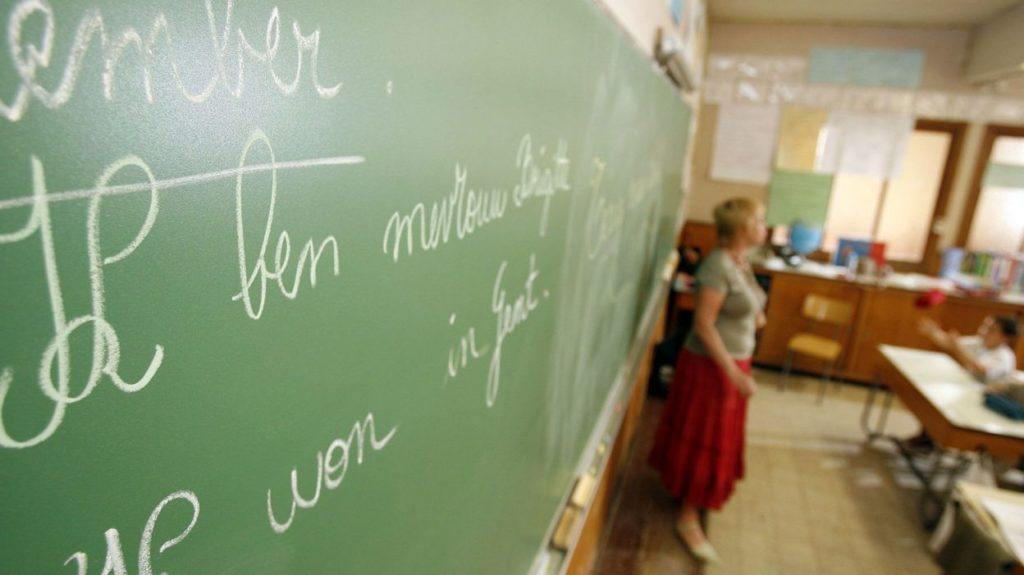Fewer than half of all French-speaking students in Wallonia and Brussels choose Dutch as their first 'modern language' in secondary school, underscoring Flemish calls to make Dutch language lessons mandatory.
Belgium is a trilingual country, however, this is not fully reflected in the curriculum of schools in all regions. Dutch is a compulsory subject in Brussels' French-speaking education from the third year of primary school, while in Dutch-speaking schools, French is a compulsory subject from the fifth year of primary school. But in Wallonia, with a few exceptions, Dutch is not a compulsory subject.
This has in recent years resulted in a drop in the number of pupils in these schools learning Dutch. In secondary schools, only 47.5% of students (121,300 pupils) took Dutch as their first modern language in the school year 2022-2023, the latest figures from the French-speaking education sector, published by La Libre Belgique, showed.
In the 2021-2022 school year, it was 48.5%, equating to a drop of one percentage point.
Given a choice?
In French-speaking schools in Brussels, learning the "first modern language" – Dutch, English or German – is compulsory starting from the third year of primary school. This means that 63,020 pupils in these schools "have opted" to learn Dutch in 2022-2023. Dutch is also compulsory from this age in the Walloon municipalities on the language border (Comines-Warneton, Mouscron, Flobecq and Enghien).
In the rest of Wallonia, pupils are only given a choice to learn these languages in the fifth year of primary school. As they were given the choice, just 58,280 young people chose Dutch classes.
This gives a total of 121,300 choices of Dutch in the Wallonia-Brussels Federation, compared with 130,740 pupils who opted for English (3,364 more). The figures highlight the trend of English overtaking Dutch, which started last year and continues to accelerate. Meanwhile, 3,531 pupils opted for German classes.
In immersion education, where some classes are offered in Dutch or English, more pupils chose to take classes in English. However, the figures did highlight that this form of education has become more popular in recent years.
Related News
- Inflation and computers swell back-to-school bill in Belgium
- Absence rates rising among Francophone teachers in Belgium
Many believe these figures have once again proven the need for a bigger boost for Dutch lessons in French-speaking education.
Minister of Education in the French Community Caroline Désir wants to make Dutch or German a compulsory subject from the third year of primary education, starting from the 2027-2028 school year, a proposal which was endorsed by the government. If implemented, this would make Dutch compulsory for pupils, automatically increasing the number.
From next week (the start of the French-speaking school's term), the introduction of the first modern language will be brought forward to the third year of primary school. This will give the first indications of whether the proposed policy is feasible, particularly considering the issue of staff shortages.

